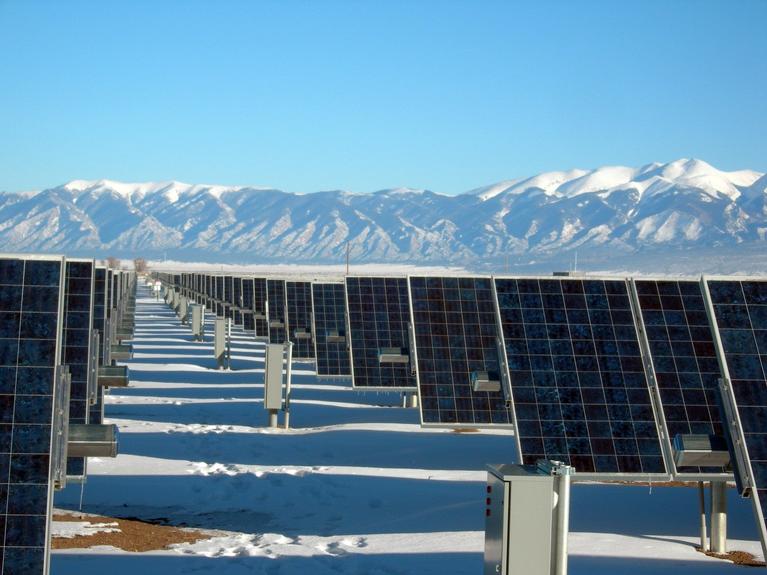
Colorado Clean Energy Siting and Permitting Resources
Colorado Clean Energy Siting and Permitting Resources
Statewide Study on Clean Energy and Transmission Siting
The Colorado legislature passed Senate Bill 24-212, recognizing the statewide importance of reliable, low-cost energy and the role of local governments in siting and permitting clean energy infrastructure. This statute mandated the Colorado Energy Office (CEO) and the Department of Natural Resources (DNR) to develop a report that evaluates and assesses local government processes for siting commercial clean energy and energy transmission projects.
CEO and DNR, with input from municipal and county governments, clean energy project developers, conservation organizations, local stakeholders, tribal governments, electric utilities, and labor organizations, were directed to:
- Evaluate local government processes for siting commercially viable clean energy projects and commercial electricity transmission.
- Assess the impact of these projects on wildlife resources and the use of wildlife mitigation.
- Address issues related to project decommissioning and community benefits agreements.
- Assess the range of fees local governments impose on these projects.
The final report also reviews and analyzes clean energy project permitting and siting practices and policies from other states. While the report includes policy options, it does not make specific policy recommendations, as this was not directed in the law.
Following extensive stakeholder engagement and public feedback, CEO and DNR released the final "Evaluation and Assessment of Local Government Processes for the Siting of Commercial Clean Energy and Energy Transmission Projects Report" on September 30, 2025.
Read the Report
Contact information: james.lester@state.co.us
Stakeholder Engagement
Beginning in early 2025, CEO and DNR hosted several stakeholder engagement opportunities to inform the initial Siting Report draft. This included an initial survey requesting input from all stakeholders, followed up by ‘listening sessions’ to discuss stakeholder survey results.
In August 2025, a first draft of the report was released, followed by a month-long process for stakeholder feedback. CEO and DNR held several public comment listening sessions where they presented an overview of the draft and provided time for questions and public comment. Written public comments were also received. CEO engaged with over 200 stakeholders throughout the process.
Colorado Clean Electricity Code Repository
SB 24-212 required CEO, in collaboration with the Department of Local Affairs (DOLA) and DNR, to create a repository of codes and ordinances related to the development of clean electricity projects and electric transmission facilities. To develop the Colorado Clean Electricity Code Repository, CEO and DNR conducted stakeholder meetings and reviewed planning codes from local Colorado jurisdictions, as well as codes from other states.
Stakeholder feedback included examples of local Colorado and national codes that facilitate responsible and effective clean electricity project development. Several stakeholders also provided examples of codes that limit the ability to effectively develop clean electricity projects.
View the Colorado Clean Electricity Code Repository
The State will periodically update the code repository with updated codes and links as needed. Please reach out to Gov_CEO_Policy@state.co.us with any suggestions or questions about the repository.
Siting and Permitting Resources for Local Governments
Senate Bill 24-212 Local Governments' Renewable Energy Projects provides resources to local governments for assessing, siting, and permitting utility-scale clean energy projects. These resources include:
- Requirements for the state to evaluate current barriers and potential opportunities to improve renewable energy siting in Colorado long-term
- Resources for counties, including technical support for ordinance development, clean energy project permitting, and model ordinances, to help fill capacity gaps at the local level
- Identification of high-priority habitat areas and recommendations for best management practices to prevent and manage wildlife impacts from renewable energy projects
- Required consultation with Tribes and consideration of potential impacts for constructing facilities in the Brunot Treaty area
Additional Resources
Local IMPACT Accelerator Grants
Local IMPACT Accelerator Grants support local governments with policy adoption to bolster local resilience, reduce emissions, and advance other state priorities, such as improved air quality. Reform to utility-scale clean energy permitting is included as an eligible policy under land use policies.
Learn more about the Local IMPACT Accelerator
Colorado Energy & Management Carbon Commission (ECMC)
The ECMC supports local and tribal governments in developing local land use codes for wind, solar, and battery energy storage projects. ECMC also offers technical support on local permit applications for clean energy projects.
Visit ECMC Solar, Wind, and Battery Storage Webpage
Colorado Parks and Wildlife (CPW)
CPW provides recommendations to local, state, and federal regulatory agencies on how to avoid, minimize, and mitigate impacts of clean energy projects. The recommendations promote responsible development of clean energy projects that support Colorado’s ambitious greenhouse gas reduction goals while upholding Colorado’s responsibility to wildlife.
Visit the Colorado Parks and Wildlife's Land Use and Energy Webpage
Colorado State Land Board
The Colorado State Land Board manages 2.8 million acres of state trust land to help fund K-12 education in the state.
Visit the Colorado State Land Board Renewable Energy Webpage